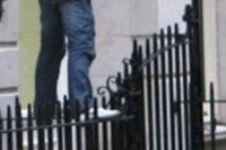Are employers expected to guard against unforseeable actions on site
For those of you who view the regular health and safety blunders photographs in ��ɫ����TV with incredulity, “utter madness” may be an expression that comes to mind.
You might assume that an employer could not be responsible for death defying acts being carried on its site. Surely employers cannot be required to guard against the unforeseeable? This question may well become far more significant in financial terms, with draft sentencing guidelines suggesting that fines should be linked to turnover for a breach of the health and safety regulations that lead to a fatality. At the moment, the suggestion is a fine of between 1% and 7.5% of turnover.
Section two of the Health and Safety Act requires employers to conduct their undertakings in such a way as to ensure, as far as reasonably practicable, that employees are not exposed to risks to their health. As Lord Hope made clear in the case of R vs Chargot, heard in the House of Lords last November, the prosecution only need show that the clause in section two that says that the company should not expose employees to risks to their health, was not achieved.
Obviously a death on site is as stark an illustration of such a failure as one could imagine. Lord Hope rejected the defendants’ primary submission that it was for the prosecution to identify and prove acts and omissions responsible for the failure.
The act goes a long way down the road to the presumption that an employer is guilty unless he is able to prove his innocence. An argument that this was in contravention of article six of the Human Rights Act failed in R vs Davies (David James), a case regarding which Lord Justice Tuckey said that the reverse burden of proof provided for in the act was justified, necessary and proportionate with regard to social aims of the legislation. The fact that the cause of an accident may remain unknown (as was the case in Chargot, where a dumper truck overturned, killing the driver) debatable or even totally unforeseeable is irrelevant as far as the prosecution is concerned.
Where does this leave employers? The answer lies in the qualification to section two: “So far as is reasonably practicable”. Lord Hope stated that the legislation is not intended to protect employees from risks that are trivial or fanciful, nor to expect employers to create an environment that is entirely risk free. The risk must be material. It is at this stage that the employer may be able to rely upon issues of foreseeability. In R vs Hatton, decided last year (six years after the death of the two workers involved), the HSE put forward an argument that what was or was not foreseeable was irrelevant in determining whether the employer had done all that was reasonably practicable to avoid the deaths. The Court of Appeal found that foreseeability was one but not the only factor to take into account. The two workers were electrocuted when moving a telescopic lighting tower causing it to touch overhead power cables. Their actions in not lowering the tower were inexplicable and contrary to all training and instructions. After a long fight involving a series of legal arguments concerning admissibility of witnesses and other issues a jury eventually acquitted the company.
In another recent decision, where an experienced manager at an NHS trust laundry crawled under a press, the Trust argued that the manager’s actions were wholly inexplicable. The HSE accepted that there was no foreseeable reason to crawl under the press but nevertheless prosecuted the trust under section two. The HSE’s own witnesses agreed that it was an act of “utter madness”. After a two-week trial, the jury acquitted the trust.
The HSE will continue to prosecute employers for failing to prevent the unforeseen and unforeseeable and that where an injury has occurred the facts will speak for themselves with little if any further detail as to what an employer should have done or failed to do required from the prosecution. Employers will continue to bear the burden of proof in persuading a jury of their innocence. This will in some cases involve passing something akin to an employee “utter madness” test - a process often entailing a highly charged and difficult time before a jury in the Crown Court. Finally there is the prospect that fines for many contractors may be in the millions if current draft sentencing guidelines come into force.




























No comments yet